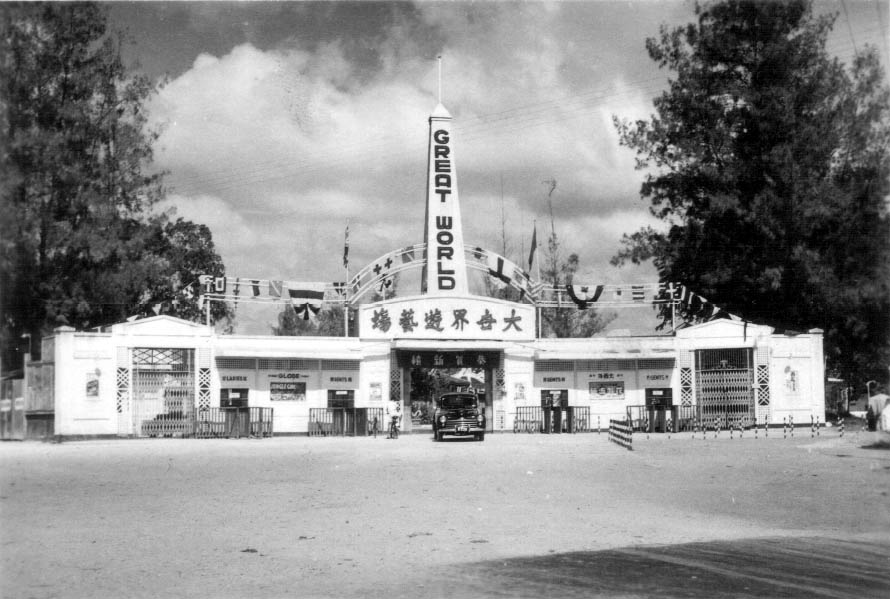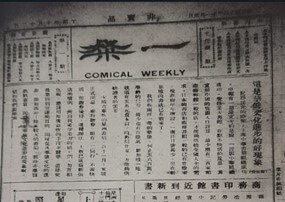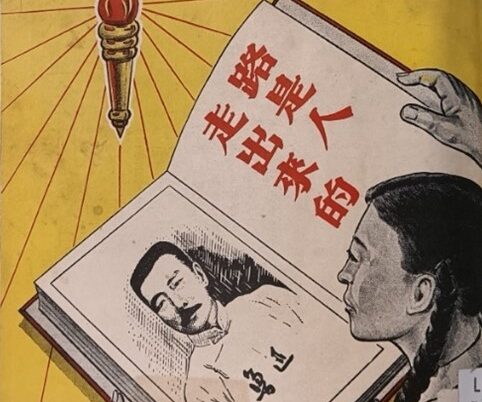Grandmasters of comedy: The iconic television duo Wang Sha and Ye Feng
Wang Sha (1925–1998), whose real name was Heng Kim Ching, was born and bred in Singapore. He had ancestral roots in Nanyang Village, Chenghai, Chaozhou, and came from an ordinary family in Boat Quay (zab boih khoi ki to the Teochews). After his father died at a young age, Wang Sha, aged 12, sold newspapers with his relatives to supplement his family’s income.
Ye Feng (1932–1995), born Siow Tian Chye in Sungai Way in Selangor, Malaysia, was a Hakka with roots in Dabu, Guangdong. He was adopted as a child by his father’s older brother, and moved with him to Singapore. After completing primary school, he became a goldsmith.

The getai years
As a teenager, Wang Sha loved watching the Wen Wen Shan Song, Dance and Magic Acrobatic Troupe, which had travelled to Singapore from the United States. He later joined the troupe and started performing with them from port to port. In 1941, Wang Sha joined the Silver Moon Song and Dance Troupe. The troupe had travelled south from China in 1938, arriving in Thailand followed by Malaya and Singapore. The troupe was brimming with talent at the time, and many of its artistes remained in Singapore and became stars in the local getai (literally “song stage”) scene in the 1950s. After World War II, many getai sprang up on the island, and Wang Sha became a major player in the scene.
Ye Feng, meanwhile, had the chance to make a guest appearance on stage when he was a young man. He caught the eye of the person in charge of the Bai Le Hui getai at Happy World amusement park. He invited Ye Feng to Bai Le Hui, kickstarting his career in entertainment. Ye Feng later joined New Life Revue at the New World amusement park, which was where he met Wang Sha. Thus began a lifelong collaboration.

The duo were an instant hit. Their huge popularity was due partly to the comedic contrast in their physical appearance (Wang Sha was skinny, and Ye Feng was chubby) as well as their relatable comedy. During those years, they often toured Singapore and Malaysia and created a dialect comedy craze everywhere they went. Their catchphrase, tee ah, zor nang ah gah ah gah jiu hor (“Oh young man, don’t overdo it”), was widely mimicked.
Performing on television
In 1963, Television Singapura1 was officially launched, and the duo was invited to appear on television. Since Singapore’s early years of nation building, the duo had participated in popular television programmes such as Zai ge zai wu (Singing and Dancing), Qing ge miao wu (Elegant Song and Dance), Hua yue liang xiao (A Beautiful Evening), Sharp Night, Xian ge li ying (Musical Showcase). Their natural knack for performance — and their incorporation of themes and everyday lingo — resonated widely with the public. Their jokes did not just entertain the audience, but educate them on topics such as environmental protection, public hygiene, racial harmony, and more.

The duo’s success in television gave them the chance to develop their careers further. They soon recorded their first-ever dialect comedy record Da nao yezonghui (Havoc at the Nightclub) for Tang Nan Ah Company, which saw massive sales and sparked the trend of dialect comedy records.
Recording and film years
In the next decade or so, the duo successively collaborated with different recording companies, recording close to a hundred records. These included Xiao qu xilie (Songs for Laughs Series), Qian cong nali lai (Where to Get Money), He xinnian (Celebrating the New Year), Dui qingjia (To the In-Laws), and Chu cheng ji (Leaving the City).

In the 1970s, Ye Feng and Wang Sha accepted invitations from Television Broadcasts Limited (TVB) to perform in their hit show Enjoy Yourself Tonight — kickstarting their show business career in Hong Kong. But in 1972, they suddenly announced that they were “breaking up” and would no longer perform together. As they continued to expand their careers in Hong Kong, Ye Feng signed a film contract with director John Law Mar’s Kai Fa Film (Hong Kong) Limited Company, while Wang Sha signed with Shaw Brothers (HK) Limited.
Before long, the duo collaborated again in Hong Kong, shooting six films co-produced by John Law Mar and Shaw Brothers, including The Crazy Bumpkins, Return of the Crazy Bumpkins, Big Times for the Crazy Bumpkins, Crazy Bumpkins in Nanyang, The Happy Trio and Thief of Thieves.
Ye Feng also independently starred in films such as The Nutty Crook, The Lucky Bumpkin, The Mad Monk, The Girlie Bar, and Teochew film Farewell to a Warrior. Wang, on top of the well-received Mr Funnybone, starred in Return of the Con Men, Every Man for Himself, The Adventures of Emperor Chien Lung, and two Taiwanese productions, Three Money Hunters and A Good Man Can Bend.
In the 1980s, with their respective film contracts fulfilled, Ye Feng signed with TVB and participated in variety shows such as Ye Ye Special and Lighter Side of Hong Kong, as well as in dramas such as The Brothers and The Bund. Wang Sha, meanwhile, was once invited to host Weekend Variety Show, produced by China Television Company (CTV) in Taiwan. During this period, he also starred in two one-episode dramas produced by Singapore Broadcasting Corporation (SBC), A-Tu and Double Blessing.

Renewal of partnership and diversification
In 1985, after some wooing from the newly-established Hoover Live Theatre in Balestier, Wang Sha and Ye Feng once again found themselves on stage together for the first time in 13 years. That same year, the duo recorded a brand-new series of comedy albums titled Happy 99 for Tony Wong Magnetic Media. It was another success.
In 1988, Wang Sha and Ye Feng began accepting invitations to perform during Hungry Ghost Festival getai, making them the highest-paid emcees at the time. Whenever they went on stage, they were greeted with bursts of applause and huge enthusiasm from the audience.
From the 1980s to the early 1990s, the duo performed in many television variety shows, including Duo Showtime on Live from Studio One and SHOWTIME on Songs and Laughs All Around. Of these variety shows, The Coffeeshop on Variety Tonight uniquely captured the joys and frustrations of ordinary folk through comedy and satire.
In 1994, on Marcus Chin’s invitation, the duo filmed their first and only dialect comedy video titled Wang Sha Ye Feng fangyan xieju (Wang Sha and Ye Feng’s Dialect Comedy). It contained new versions of the two masters’ previous works while preserving their style of comedy from 30 years ago, one that mixed Teochew, Cantonese, Hokkien, Mandarin, Malay, and more to reflect the vibrant multilingual spirit of the community.
That year, the duo also accepted an invitation to participate in the NTUC Radio Heart anniversary show Kaleidoscope Heart. This would be the last time they performed on stage together. The following year, on 1 September 1995, Ye Feng died of a heart attack at the age of 63. Wang Sha subsequently announced his retirement from entertainment. On 18 January 1998, he died in hospital at the age of 73 from a deteriorating lung condition.
Wang Sha and Ye Feng are two of Singapore’s most notable and beloved performers. Their shows offered a unique take on Singaporean humour and were a mishmash of different languages and cultures. They were full of local flavour and reflected the ups and downs of ordinary people. Whether it be getai, theatre, television, or film, their decades-long output brought much joy to audiences and struck a chord with them.
This is an edited and translated version of 谐剧泰斗、电视双宝:王沙、野峰. Click here to read original piece.
| 1 | Television Singapura later merged with Radio Singapura to form Mediacorp’s predecessor, Radio and Television Singapore (RTS) in 1965. |
Kwan, Sin Ngee (Ong Joo Hong). Guan shu hua jiu [Uncle Guan talks about old times]. Singapore: Wen Yuan Publishing House, 1986. | |
Qin Huai. Bi zhong qing [Memories of Singapore’s entertainment scene]. Singapore: Lingzi Media, 2003. | |
Su, Zhangkai. Di wei, zuoren ajia ajia jiu hao: Wang Sha he Ye Feng de 90 ge rensheng gushi [Oh young man, don’t overdo it: 90 life stories from Wang Sha and Ye Feng]. Singapore: Teochew Poit Ip Huay Kuan, 2019. | |
Tay, Philip J., Choo Lian Liang et al., eds. Huiwang jialigu shan [Reflections from Caldecott Hill]. Singapore: Global Publishing, 2021. | |
Heng Kin Ching @ Wang Sha, oral history interview by Tan Beng Luan, 21 August 1992, transcript and audio. National Archives of Singapore (accession no. 001371), Reels 1–11. | |
Wong, Chin Soon. Xinjiapo getai shi hua [History of Singapore getai]. Singapore: The Youth Book Co., 2006. |










